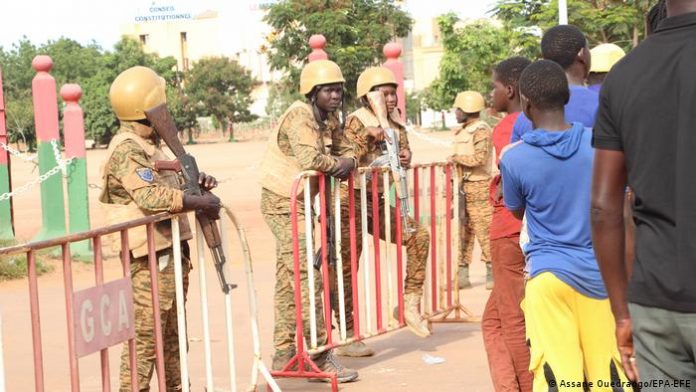In West Africa’s Burkina Faso, the military staged another coup eight months after the last coup. A group of military officials read a statement on national television Friday night that interim President Paul-Henri Sandaogo Damiba was relieved of his posts. Captain Ibrahim Traoré was named as the new leader of the military government. The rebellious military imposed a night curfew and announced that the country’s borders would be closed immediately. The constitution will also be suspended. Shots had previously been heard at the interim president’s official residence.
The rebels cited “the continuous deterioration in the security situation” in the country as the reason for Damiba’s removal from power. By the evening he had let it be known that he was negotiating with his brothers-in-arms. In a statement published by his office, there is also talk of a “disgruntlement among certain parts of the military.” At the same time, Damiba called on the population to remain calm and prudent. Soldiers had been stationed in central locations in the Burkinabe capital of Ouagadougou since the early morning. They also blocked access to the Presidential Palace. Gunshots were heard in the city.
At a demonstration on Friday afternoon, participants criticized Damiba’s cooperation with France, waved Russian flags and, according to local media reports, called for his resignation. The Federal Foreign Office updated its travel and safety information and warned of a continued tense overall situation and possible short-term deterioration.
Second coup within eight months
Damiba only came to power at the end of January in a coup against elected President Roch Marc Christian Kaboré. He had announced that he would make security a priority in the country, which had been shaken by jihadist attacks for years. However, the military government led by Damiba was unable to calm the situation. Rather, jihadist attacks have increased in recent months, especially in the north of the country. In September, there were two serious attacks on supply convoys in the northern border region with Mali and Niger. Dozens of soldiers and civilians were killed.
Ulf Laessing, head of the Konrad Adenauer Foundation’s Sahel regional program, explained: “Jihadists who originally came from the north, even before that from Mali, have now spread throughout the country.” Outside of the country’s two big cities, the situation is actually almost out of control, he told DW. The state has little to say about it.
The political and humanitarian situation in the Sahel country with around 21 million inhabitants has been unstable for years. Armed groups, some affiliated with the Islamic State terrorist group or the al-Qaeda terrorist network, are active there and in neighboring Mali and Niger. Long-lasting droughts and hunger crises are also causing problems for the country, which is impoverished despite rich gold deposits.
kle/nob/rb (afp, dpa, rtre, epd, Deutsche Welle)














